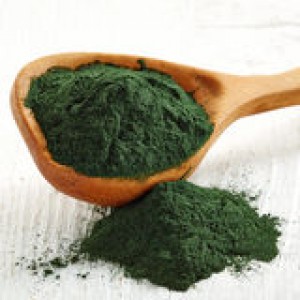News
DIC looks to extend natural blue colouring leadership
10 Jul 2015DIC Corporation today announced that it expects on-schedule completion in August 2015 of a new extraction plant for Linablue, a Spirulina-derived natural blue food colouring. Construction of the plant, which is located on the site of subsidiary Earthrise Nutritionals, the DIC Group’s U.S. Spirulina production base, began in May 2014. After commissioning, commercial production is expected […]

 DIC Corporation today announced that it expects on-schedule completion in August 2015 of a new extraction plant for Linablue, a Spirulina-derived natural blue food colouring. Construction of the plant, which is located on the site of subsidiary Earthrise Nutritionals, the DIC Group’s U.S. Spirulina production base, began in May 2014. After commissioning, commercial production is expected to begin in September. A state-of-the-art facility, the new plant also complies with the state of California’s safety, quality, and environmental regulations said to be the strictest in existence, enabling the DIC Group to say it can guarantee the world’s largest and most stable supply of the highest-grade Spirulina natural blue food colouring.
DIC Corporation today announced that it expects on-schedule completion in August 2015 of a new extraction plant for Linablue, a Spirulina-derived natural blue food colouring. Construction of the plant, which is located on the site of subsidiary Earthrise Nutritionals, the DIC Group’s U.S. Spirulina production base, began in May 2014. After commissioning, commercial production is expected to begin in September. A state-of-the-art facility, the new plant also complies with the state of California’s safety, quality, and environmental regulations said to be the strictest in existence, enabling the DIC Group to say it can guarantee the world’s largest and most stable supply of the highest-grade Spirulina natural blue food colouring.
Linablue, manufactured by the DIC Group, is a vivid blue food colouring made from phycocyanin, a blue colourant extracted from Spirulina. In 2013, the U.S. Food and Drug Administration approved the use of hycocyanin as a natural colourant in food and beverage products. Since then, demand has risen dramatically, DIC says, particularly in the Americas and Europe, which have seen a rapid shift in consumer demand for natural food colourings. Robust shipments of Linablue, which is favoured for colouring frozen sweets, gum, candy-coated chocolate and other confections, have, according to the company, kept the extraction plant at the group’s Spirulina farm on Hainan Island, in the People’s Republic of China, operating at full capacity. The global shift toward natural blue food colouring underscored the urgency of building a second extraction plant, in the United States, thereby enabling the group to establish a two-pronged global production configuration.
DIC estimates that the global market for natural blue food colouring will double between now and 2018, by which time it also expects the DIC Group’s share of this market to expand to 50%, from 20% at present. The DIC Group’s share of the global market for Spirulina-derived natural blue food colouring is, it says, currently 90%+, and with this particular market set to expand between seven and 10 times its present size by 2018, DIC says it is eyeing a number of moves to secure its supremacy.
In addition to positioning the DIC Group to respond effectively to soaring demand, the new extraction plant—investment in which is estimated at approximately $10 million—will enable the Group to guarantee a stable supply of Linablue, it believes. This state-of-the-art facility not only boasts a production capacity several times that of the Hainan Island farm’s extraction plant, but also complies with stringent environmental regulations.
The DIC Group’s integrated production capabilities—encompassing everything from the cultivation of high-grade Spirulina through to refining and the manufacture of finished products—ensure the safety and quality of its products, the company says, and provide peace of mind for its customers, most importantly by securing traceability. DIC Group Spirulina products are certified Halal and Kosher. The Group is also in the process of obtaining Food Safety System Certification (FSSC) 22000.
DIC says its decision to build a new extraction plant was prompted by a rapid global shift toward using natural, rather than synthetic, colouring in food, and is confident that the new plant will strengthen its global leadership position, enabling it to capture expanding demand, as well as enhance its ability to guarantee a sufficient, stable supply of Linablue, thereby solidifying its global market dominance.
Rich in more than 50 vitamins and minerals, including calcium and iron, Spirulina is a nutrient-rich blue-green algae that grows naturally in lakes in Africa and Central and South America. DIC says that it was the first company to succeed in cultivating Spirulina.
